Filter by
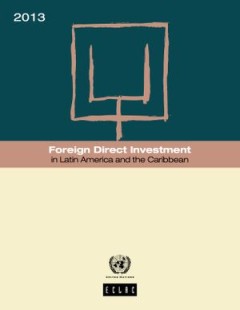
Foreign Direct Investment in Latin America and the Caribbean 2013
The 2014 edition of the Economic Survey of Latin America and the Caribbean consists of three parts. Part I considers the economic performance of the region in the first half-year as well as the outlook for the year as a whole, against the backdrop of a world economy marked by opportunities and setbacks. The causes of the modest economic growth forecast for the year are examined and attention is…
- Edition
- -
- ISBN/ISSN
- 9789211218596
- Collation
- -
- Series Title
- -
- Call Number
- 650
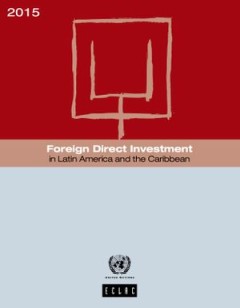
Foreign Direct Investment in Latin America and the Caribbean 2015
In its latest edition, the Foreign Direct Investment in Latin America and the Caribbean report analyzes in-depth the FDI received by the Caribbean, where these flows are much more significant than in the rest of the region as a proportion of Gross Domestic Product (GDP). The study also examines the impact of FDI on the environment, which has not been measured or regulated sufficiently by countr…
- Edition
- -
- ISBN/ISSN
- -
- Collation
- -
- Series Title
- -
- Call Number
- 650
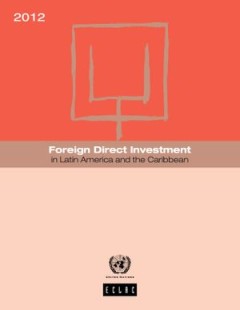
Foreign Direct Investment in Latin America and the Caribbean 2012
For the third year in a row, the countries of Latin America and the Caribbean continued to attract growing flows of foreign direct investment (FDI). The figures for 2012 were particularly significant because they were set in an international context of falling global FDI flows. The new increase in FDI posted brought the region's share of global FDI flows up to 12% in 2012. Economic growth in th…
- Edition
- -
- ISBN/ISSN
- 9789211218343
- Collation
- -
- Series Title
- -
- Call Number
- 650
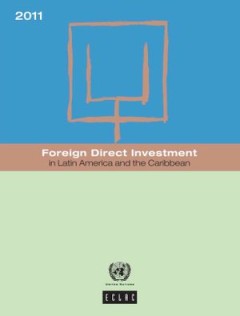
Foreign Direct Investment in Latin America and the Caribbean 2011
In 2010 the Latin American and Caribbean region showed great resilience to the international financial crisis and became the world region with the fastest-growing flows of both inward and outward foreign direct investment (FDI). FDI inflows were up by 40% with respect to 2009 and stood at a total of USUS$ 113 billion. Outflows increased almost fourfold to reach an all-time high of USUS$ 43 bill…
- Edition
- -
- ISBN/ISSN
- 9789212210605
- Collation
- -
- Series Title
- -
- Call Number
- 650
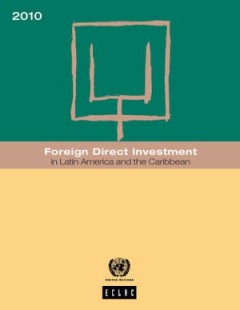
Foreign Direct Investment in Latin America and the Caribbean 2010
In 2010 the Latin American and Caribbean region showed great resilience to the international financial crisis and became the world region with the fastest-growing flows of both inward and outward foreign direct investment (FDI). FDI inflows were up by 40% with respect to 2009 and stood at a total of USUS$ 113 billion. Outflows increased almost fourfold to reach an all-time high of USUS$ 43 bill…
- Edition
- -
- ISBN/ISSN
- 9789211217599
- Collation
- -
- Series Title
- -
- Call Number
- 650
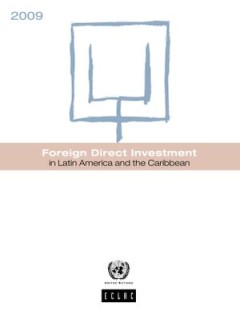
Foreign Direct Investment in Latin America and the Caribbean 2009
In 2009, the global economy experienced the fallout from the worst economic crisis since the Great Depression of the 1930s. Given the decline in output and in international trade in the world's largest economies, sharply lower foreign direct investment (FDI) flows were to be expected, as was the subsequent toll on the installation of new production capacity and on the technological modernizatio…
- Edition
- -
- ISBN/ISSN
- 9789211217384
- Collation
- -
- Series Title
- -
- Call Number
- 650
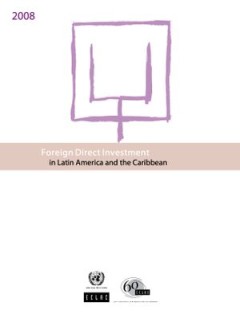
Foreign Direct Investment in Latin America and the Caribbean 2008
In 2008, inward foreign direct investment (FDI) in Latin America and the Caribbean rose to a new record high despite slowing with respect to the previous year, and the region's outward foreign direct investment (OFDI) reached its second highest level ever. Considering the economic and financial turmoil of the times, these results are surprisingly positive, but caution needs to be exercised in t…
- Edition
- -
- ISBN/ISSN
- 9789211217025
- Collation
- -
- Series Title
- -
- Call Number
- 650
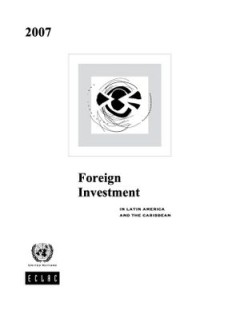
Foreign Direct Investment in Latin America and the Caribbean 2007
Latin America and the Caribbean received record levels of foreign direct investment (FDI) in 2007, with inflows surpassing the US$ 100 billion mark for the first time ever. This development is all the more significant because the previous record was set in 1999 in the context of one-off privatizations. The upsurge in investment was fuelled mainly by market-seeking transnational corporations (TN…
- Edition
- -
- ISBN/ISSN
- 9789211216684
- Collation
- -
- Series Title
- -
- Call Number
- 650
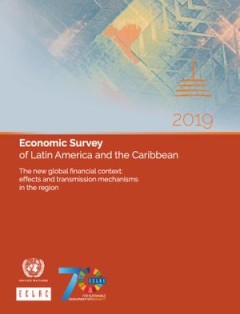
Economic Survey of Latin America and the Caribbean 2019 : The new global fi…
The 2019 edition of the Economic Survey of Latin America and the Caribbean consists of three parts. Part I outlines the region’s economic performance in 2018 and analyses trends in the early months of 2019, as well as the outlook for the rest of the year. It examines the external and domestic factors that have influenced the region’s economic performance, analyses the characteristics of eco…
- Edition
- -
- ISBN/ISSN
- 9789211220209
- Collation
- -
- Series Title
- -
- Call Number
- 650
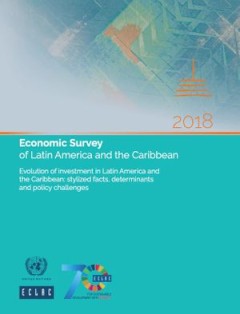
Economic Survey of Latin America and the Caribbean 2018 : Evolution of invest…
The 2018 edition of the Economic Survey of Latin America and the Caribbean, its seventieth issue, consists of three parts. Part I outlines the region’s economic performance in 2017 and analyses trends in the early months of 2018, as well as the outlook for the rest of the year. It examines the external and domestic factors that have influenced the region’s economic performance, analyses the…
- Edition
- -
- ISBN/ISSN
- 9789211219975
- Collation
- -
- Series Title
- -
- Call Number
- 650
 Computer Science, Information & General Works
Computer Science, Information & General Works  Philosophy & Psychology
Philosophy & Psychology  Religion
Religion  Social Sciences
Social Sciences  Language
Language  Pure Science
Pure Science  Applied Sciences
Applied Sciences  Art & Recreation
Art & Recreation  Literature
Literature  History & Geography
History & Geography